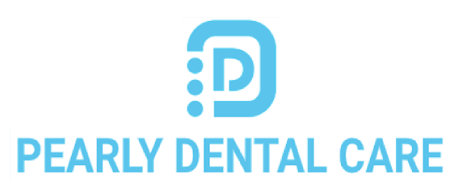Pearly Dental Care Recommends Botox As A Non-Surgical Solution to TMJ
Bruxism and TMJ Syndrome
If you wake up regularly with headaches or pain and discomfort in your jaw, neck, or shoulders, you may have temporomandibular joint (TMJ) disorder or bruxism. TMJ disorders are characterized by jaw problems, including clicking or popping in the jaw and difficulty opening and closing your mouth.
Bruxism, on the other hand, is when you clench or grind your teeth. This can happen during the day or while you’re asleep. Daytime bruxism is sometimes the result of stress, while nighttime bruxism can be associated with snoring or sleep apnea. Missing or poorly aligned teeth (including bad bites) can also make bruxism more likely.
Prescription drugs (particularly antidepressants) can increase the likelihood of grinding, as can tobacco or alcohol use. Bruxism can also run in families, and it can be associated with disorders like GERD, ADHD, and Parkinson’s disease.
Symptoms and Complications of Bruxism and TMJ
Millions of people have either a TMJ disorder or bruxism, and some people have both. If you have one of these problems, you are not alone. However, that does not mean you shouldn’t seek treatment. TMJ disorders can cause patients unnecessary pain when left untreated, and untreated bruxism can lead to tooth damage and sensitivity.
In many cases, a person with bruxism might not even be aware of how often they grind their teeth. This is especially true of people with sleep bruxism. Catching the grinding in the act isn’t the only way to know it’s happening, though.
There are several clear indicators of bruxism:
- Shortened, worn down teeth with flattened chewing surfaces
- Damage like chips and cracks in the teeth
- Exposed dentin (the yellow bony tissue layer beneath the enamel)
tooth loss - Jaw soreness (in sleep bruxism, the jaw is sorer in the morning, while daytime bruxism leaves the jaw sore by evening)
- Frequent headaches
- Overdeveloped jaw muscles
Symptoms of TMJ disorders include:
- Pain or tenderness of your jaw
- Pain in one or both of the temporomandibular joints
- Aching pain in and around your ear
- Difficulty chewing or pain while chewing
- Aching facial pain
- Locking of the joint, making it difficult to open or close your mouth
Treating TMJ and Bruxism with BOTOX and Fillers
Many dentists treat TMJ disorders (also called TMD) and bruxism with night guards or splints, which are very helpful, but at Greencastle Hometown Dental, we can also treat TMJ problems and bruxism with BOTOX, which is just a shorter way of saying “botulinum toxin.” The BOTOX or filler is injected into painful problem areas to provide relaxation and relief.
BOTOX treatments are quick and easy, making them a convenient treatment for TMD and bruxism pain. Of course, your specific treatment depends on your situation and your needs. For best results, your dentist may recommend both a night guard and BOTOX or filler treatments.
Why Botox?
Life is a rollercoaster of emotions — we laugh, we cry, we pout, we smile. Over time, these emotions begin to show up as wrinkles on our once-smooth faces. If you live in San Jose, , or Sunnyvale, California or the surrounding areas and are looking for a fresh start, we’ve got just the thing for you.
How Does Botox Work?
Botox is an injection of highly purified botulinum toxin. It is used to temporarily improve the look of crow’s feet lines around the eyes and frown lines between the eyebrows. Botox temporarily relaxes and reduces muscle activity. This allows you to see visible smoothing of wrinkles in a short amount of time. Botox both makes existing wrinkles appear smoother and prevents future wrinkles from forming.
After your Botox treatment, there is minimal recovery time and you can immediately and easily resume your day-to-day activities. It only takes two to seven days to see the final results of your treatment, and the effects last for 4-6 months! If you are interested in scheduling Botox treatment or if you simply have some questions, please give us a call at (408) 300-0767 or email us.
How Does BOTOX Provide Facial Pain Relief?
BOTOX and filler injections relieve pain caused by TMJ disorders and bruxism by relaxing the muscles in your face, which prevents jaw tension, clenching, and teeth grinding. This muscle relaxation helps to relieve pain in your jaw, neck, and shoulders, in addition to reducing the occurrence of migraines and headaches. It can also help protect your teeth from damage due to pressure or grinding.
We Can Help
We value our relationship with you. Here at Pearly Dental Care, we’re already your trusted dental professionals. Trust us with your cosmetic needs as well. While growing old is inevitable, getting wrinkles doesn’t have to be. Call us today to at (408) 300-0767 to discuss Botox! We’d love to answer your questions.


